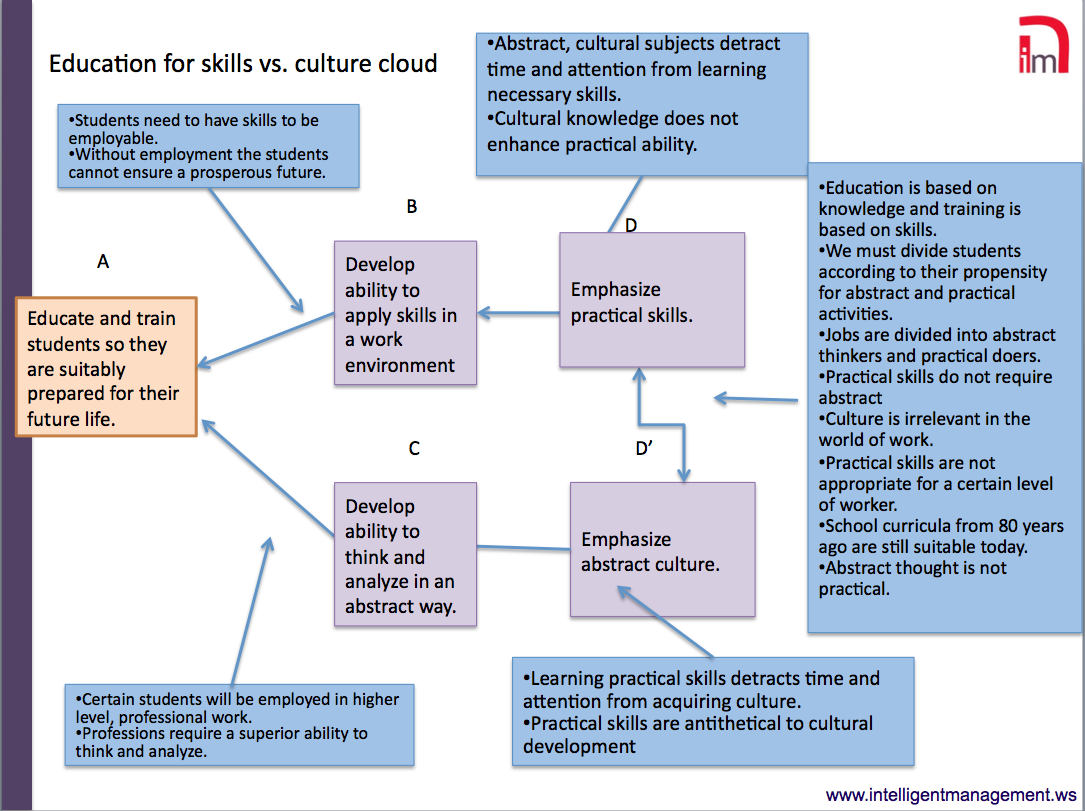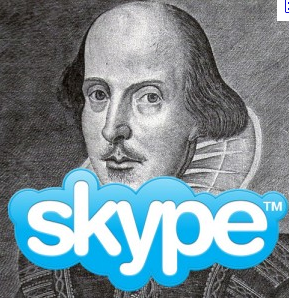Humanity evolves through cooperation. This cognitive evolution has allowed us to grow beyond living in isolated, warring tribes to create international communities based on common interests. The distinctive feature that has allowed mankind to evolve in this cooperative way beyond animals is language. It is through language that humans create higher levels of consciousness.
Thanks to the development of language, both verbal and mathematical, we as humans enjoy the ability of thinking in an abstract way, and it is thought at the level of abstraction that leads to the creation of new knowledge.
In order to best serve our young, should schools concentrate more on teaching skills rather than abstract knowledge? Is it more important for young people to leave school equipped with know-how that can be immediately applied in a work environment, or should they be equipped with a mental infrastructure that allows them to develop their thought processes and consciousness?
The extreme case of the Liceo Classico
There are high schools in Italy (Liceo Classico) that for decades have been teaching students hours of Latin and Greek language and culture, together with traditional subjects of Italian, maths, history, geography, etc. These students receive no education in sport, art, music, or any manual/physical activity whatsoever. The total bias of this kind of school is towards promoting culture in the abstract sense. There are other high schools in Italy that concentrate mainly on technical skills, assuming that the students lack the intellectual capacity to learn more abstract concepts. The case in Italy is extreme, but it still reflects separations that exist in schooling in other nations. As always, it is useful to examine the assumptions (mental models) that keep us trapped in a seeming conflict in order to find a new path that protects the legitimate needs underpinning the ‘conflict’.
How can we overcome the seeming conflict between a school for abstract culture and a school for practical skills?
Looking at the conflict of culture vs. skills
Let’s build the conflict using the Conflict Cloud tool from the Theory of Constraints:
A school based on abstract culture protects the need for developing the ability to think and analyze in an abstract way
whereas
A school based on practical skill protects the need for developing the ability to apply skills in a work environment
We may verbalize the common goal of these two needs as:
Educate students so they are suitably prepared for their future life.
The assumptions between the two conflicting positions include:
- Education is based on knowledge and training is based on skills.
- We must divide students according to their propensity for abstract and practical activities.
- Jobs are divided into abstract thinkers and practical doers.
- Practical skills do not require abstract thought.
- Abstract thought is not practical.
- Culture is irrelevant in the world of work.
- Practical skills are not appropriate/necessary for a certain level of worker.
The diagram below contains the formal representation of the conflict using the Thinking Process Tool known as the Conflict Cloud. In our next post we will be looking at statements that invalidate the assumptions between the two conflicting positions.

See also:
Educating for Complexity: How Do We Transform Schools into Centres of Innovation?
Innovation and Education: The School of Evolution
Reality is Not Made Up of Cycles but Complexity: Education and Innovation Pt. 2
Looking at the Core Conflict in Education and Innovation Today (Pt. 3)
Looking at Systemic Solutions for Education and Innovation






for some reason this makes more sense than before…